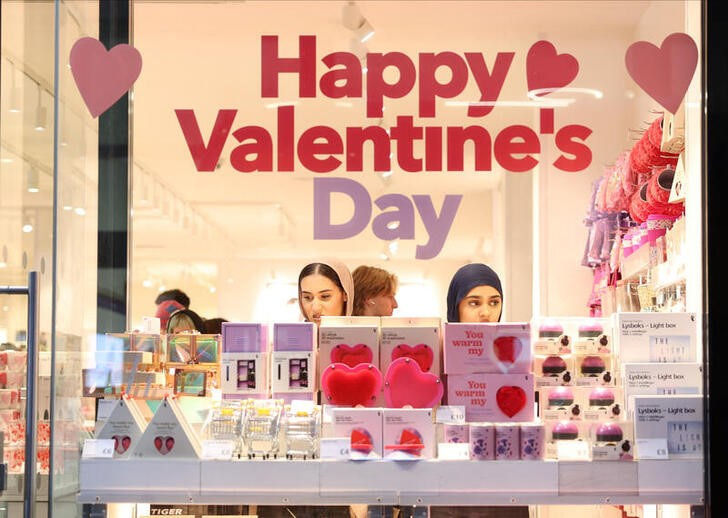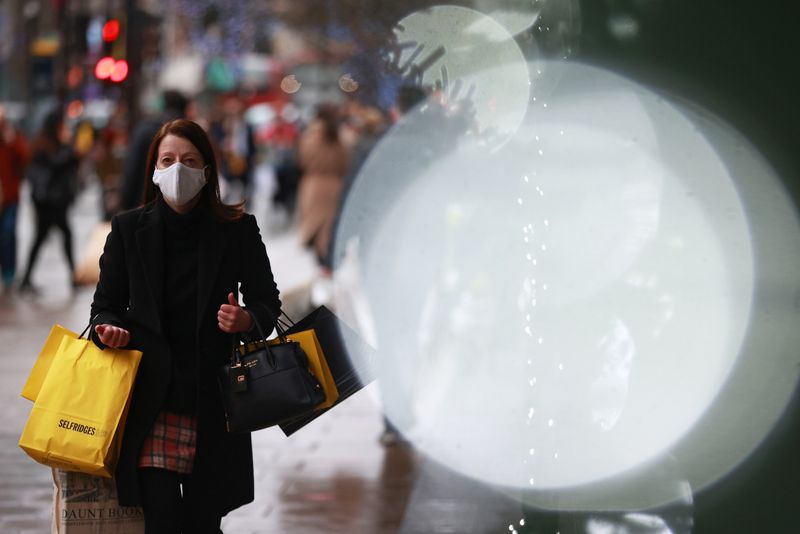By Suban Abdulla
LONDON (Reuters) -British retail sales unexpectedly held steady in February, according to data that chimed with improving confidence among consumers about the outlook for their finances with inflation slowing and interest rates likely to come down too.
Retail sales volumes were flat and remained 1.3% below levels before the COVID-19 pandemic in 2020, the Office for National Statistics said on Friday.
But economists polled by Reuters had forecast that sales volumes would fall by 0.3% on the month.
The stronger-than-expected figures added to signs that the economy is recovering from last year's mild recession.
"The prospect of interest rate cuts and the boost to real household incomes from lower inflation and the 2p cut to national insurance in April suggest the recovery in real consumer spending will continue throughout this year," Alex Kerr, assistant economist at Capital Economics, said.
Finance minister Jeremy Hunt announced on March 6 a second cut in social security contributions in under four months as he and Prime Minister Rishi Sunak try to turn around the Conservative Party's fortunes before an election expected later this year.
The ONS said heavy rain in February hurt sales at food and household goods stores but boosted online shopping which jumped by the most since July 2023 in value terms.
Clothes sales rose last month as consumers opted to shop around for promotions and new collections.
Clothing sales rose by 1.7% - the biggest increase since December 2022 - after a 0.7% decline in January.
Compared with a year ago, overall sales volumes were 0.4% lower.
February's data follows a couple of volatile months when sales volumes slumped by a monthly 3.5% in December after a weak Christmas trading period before jumping 3.6% in January.
CONSUMERS MORE UPBEAT BUT STRAINS REMAIN
Separately on Friday, a survey showed British consumer sentiment also held steady in March but households turned positive about the outlook for their personal finances for the first time in more than two years.
Analysts largely expect retail activity to rebound further as inflation continues to fall, with interest rates also likely to come down.
"With households already saving a larger fraction of their incomes than usual and confidence having recovered, we expect further increases in disposable income to feed through strongly to overall spending," Rob Wood, chief UK economist at Pantheon Macroeconomics, said.
British consumer price growth slowed by more-than-expected in February, bolstering expectations of interest rates cuts by the Bank of England (BoE). It said on Thursday inflation was likely to fall below its target 2% in the second quarter.
Earlier this month, data showed Britain's economy picked up at the start of the year after entering a brief recession in the second half of 2023.
While the economy has been slow to grow in recent years, the BoE, which held interest rates for the fifth meeting in a row this week, has forecast 0.25% growth this year. The country's official budget forecaster predicts a 0.8% expansion.
BoE Governor Andrew Bailey struck an optimistic tone in an interview with the Financial Times published on Friday, saying expectations of interest rate cuts were not unreasonable.

The comments will be welcomed for Sunak who has promised voters to get the economy growing.
Sales volumes excluding petrol were up 0.2% on the month.
